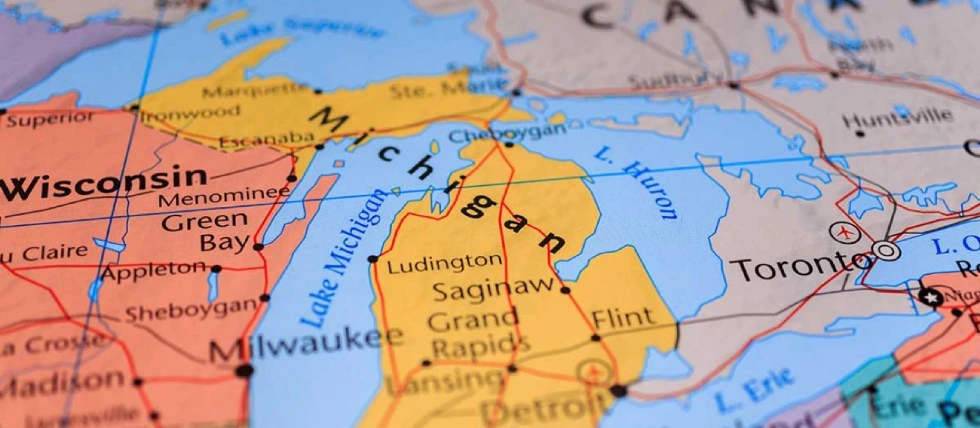Papaya Gaming Issued with Cease-and-Desist Order in Michigan
The Michigan Gaming Control Board (MGCB) has issued a public statement saying that it sent a cease-and-desist letter to Papaya Gaming, a Tel Aviv-based company.

Michigan on the US map. MGCB issues cease-and-desist order to Papaya Gaming.
The MGCB claims that Papaya Gaming has been facilitating illegal gambling in Michigan through several mobile apps accessible by state residents. The board has not disclosed where the information originated; it just said that an anonymous tip led them to investigate the company’s practices.
Numerous Papaya Gaming Apps Allow Real Money Gambling
Apps such as Bubble Cash, 21 Cash, Bingo Cash, and Solitaire Cash are among several identified by the MGCB as allowing players to wager real money and win cash prizes. The board argues this violates key laws in Michigan, including the Michigan Penal Code, the Michigan Gaming Control and Revenue Act, and the Lawful Internet Gaming Act.
Papaya Gaming could potentially receive fines of up to $100,000 and company officials might face prison sentences of up to 10 years if convicted. However, for now, the MGCB is focused on enforcing the cease-and-desist order and has given the company a 14-day deadline to comply, which is standard procedure for such letters.
Henry Williams, the executive director of the MGCB, has expressed his support for the regulatory board’s actions.
The Michigan Gaming Control Board firmly believes in a regulated and safe gaming environment. Illegal gambling is not tolerated in Michigan, and we will take all necessary actions to protect our residents from such unlawful practices.
More Regulation News
Crackdown on Unlawful Gambling and Sweepstakes
It seems that MGCB is in the middle of a crackdown on illegal operators. Earlier this year, Bovada, a site that has operated without proper licenses in most US states for years, was similarly ordered to cease operations in Michigan due to a lack of legal approval.
The regulatory attention goes beyond individual companies. A great deal of attention is being given to the sweepstakes casino model by the regulators and lawmakers.
Papaya Gaming also faced legal challenges earlier in the year. A lawsuit claimed that the company employed bots, or computerized opponents, to manipulate game outcomes and inflate user participation figures. These bots allegedly gave the company an unfair advantage by matching human players against pre-programmed opponents. Despite its legal troubles, Papaya Gaming claims to host 15 million tournaments daily.
RELATED TOPICS: Regulation
Most Read
Must Read
 Interviews
Interviews
Sweepstakes Casinos: Thriving in an Ever-Changing Industry – Interview with Attorney Stephen C. Piepgrass
Feb 17, 2025 Interviews
Interviews








Review this New Post
Leave a Comment
User Comments
Comments for Papaya Gaming Issued with Cease-and-Desist Order in Michigan